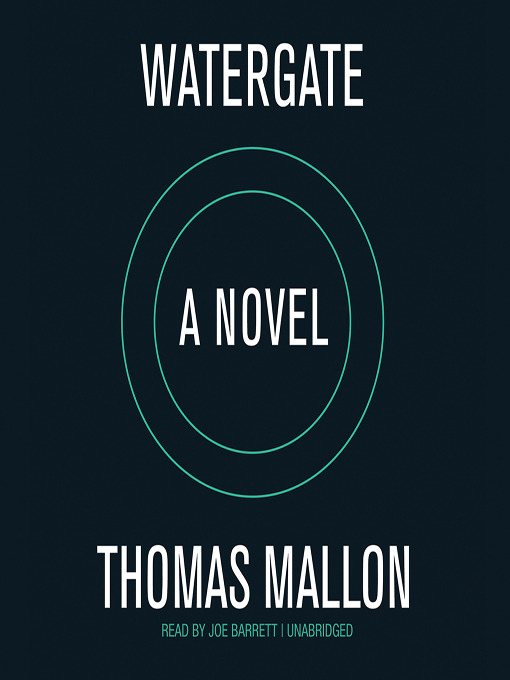
Watergate
A Novel
کتاب های مرتبط
- اطلاعات
- نقد و بررسی
- دیدگاه کاربران
نقد و بررسی

While the story of the Watergate scandal has been covered in numerous nonfiction books, only now has an honored historical novelist imagined the colorful characters of the Nixon administration. Ably aided by narrator Joe Barrett, Mallon captures the essence of the people behind the headlines and creates a behind-the-scenes look at life in the early 1970s. Barrett fights the urge to fully imitate the well-known voices but tints his performance with just the right tones. Mallon characterizes incidental players who are thrust into the public spotlight during the scandal, such as Rosemary Woods, with empathy, and Barrett's delivery reflects the author's humanity. This depiction of the famous "third-rate burglary" and the subsequent cover-up that brought down a president is enlightening and entertaining. R.O. Winner of AudioFile Earphones Award (c) AudioFile 2012, Portland, Maine

November 14, 2011
Mallon’s historical novels have been moving steadily closer to the present, from the Lincoln era through the Gilded and Jazz ages to the 1940s and, with Fellow Travelers, his last book, the McCarthy era. Here he takes on the ’70s, which, depending on the reader, will seem either ancient or way too recent to be history. As Mallon moves from the break-in of the Democratic National Committee offices to Nixon’s resignation, shifting viewpoints as he goes, he provides a lot of exposition. Some of it, implausibly, occurs in dialogue and internal monologues, as people go over what they know for the sake of readers who no longer do or never did. It’s hard going at first, but the reward is getting to enter the heads of Watergate participants who were off to the side or never wrote memoirs: Nixon secretary Rose Mary Woods, progenitor of the famed 18-minute tape gap; stoic Pat Nixon; meddling Alice Roosevelt Longworth, famously tart-tongued and responsible here for some very funny moments; and Mississippian Fred LaRue, aka the “Bagman.” Mallon makes these people sympathetic, no small feat; readers may be surprised at how much they end up disliking Elliot Richardson, one of the era’s few heroes. If the author can’t bring the story to a satisfying close or explain why so many were so loyal to the president they call “the Old Man,” well, history is often messier than fiction. Agent: The Wylie Agency

























دیدگاه کاربران